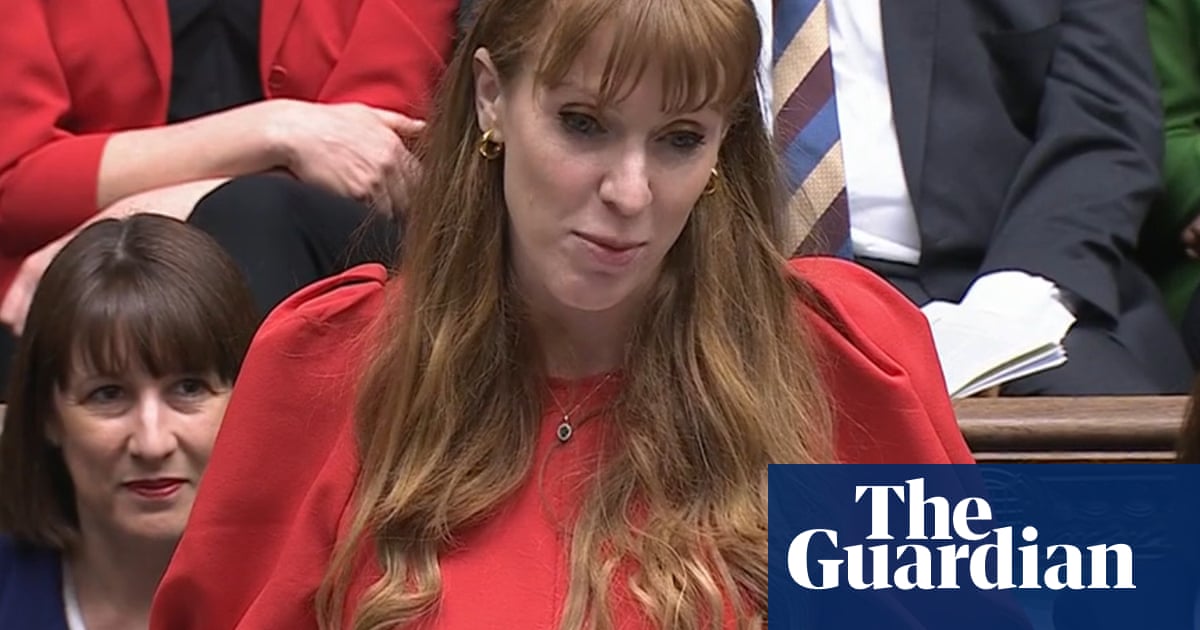
When Keir Starmer tried to remove Angela Rayner from her role as party chair in 2021, it triggered a row that lasted several hours and scarred both figureheads.
This year, however, the Labour leader had no such problem, using his reshuffle to promote his deputy to shadow levelling up secretary in a move that encapsulated how her stock has risen within the party and with the wider public.
Now, as the party prepares for an election campaign before the end of next year, Rayner is likely to be one of its most high-profile campaigners thanks to her ability to resonate with voters others struggle to reach.
“I love general election campaigns,” she says on the eve of Labour’s annual conference in Liverpool. “Parliament is school to me, that’s where you need to do your revision and your homework, whereas being on the road for me is like playtime.”
Rayner, with her broad Stockport accent and brightly coloured suits, is one of parliament’s most recognisable figures. Her outspokenness has sparked controversy and made her a hate figure among Tory MPs, whom she once described as a “bunch of scum”.
But it is her upbringing that distinguishes her most from other MPs.
Born in Stockport to a mother with mental health issues and a father who scared her so much she would wet the bed, Rayner became a mother and left school at 16. She became a care worker, and got interested in Labour politics through her work as a representative for Unison.
“People have an unconscious bias about you,” she says. “So I often get: ‘She’s thick as mince,’ because people think: ‘Had a baby at 16, left school without qualifications.’ There’s connotations that some people think hold you back, but I’ve always seen it as an asset.”
Rayner joined parliament in 2015 and rocketed through the party ranks to become shadow education secretary in 2016, helped in part by a series of resignations from the shadow cabinet as Labour MPs attempted and failed to topple Jeremy Corbyn.
She was elected deputy leader in 2020, but her decision to back the Corbynite Rebecca Long-Bailey instead of Starmer in the leadership election earned her suspicion from some in the leader’s office.
A bigger source of friction, however, is their different personalities.
“Both Keir and Angela come from humble backgrounds,” says one shadow cabinet member. “But where Keir learned to deal with his difficulties by distancing himself from emotion, Angela became a very sensitive person who is quick to anger.”
As evidence of her emotional sensitivity, Rayner used to call an elderly female Tory voter for weekly chats. Edna (not her real name) did not know who Rayner was but once paired with her on a charity phone-a-friend scheme before Rayner became deputy leader.
Asked whether she still speaks to Edna, Rayner’s voice suddenly breaks. “She died about a year ago,” she says.
“She never knew who I was. But I spoke to her every Friday … I very much tried not to get into politics for obvious reasons, in case I’d out myself – so I’d always change the subject.”
The portrait contrasts with Starmer’s more buttoned-up public persona, but she says they have come to appreciate each other’s different styles.
“We’ve just grown as a couple,” she says, laughing. “It’s like any relationship. You just learn each other’s ways.”
A more important factor in her political revival is her growing popularity with voters, especially northern Tories, making her a powerful weapon in the “red wall”.
In recent focus groups conducted by Public First with Conservative voters in Bolton and West Bromwich, Rayner was the most popular British politician. Voters in both groups talked about her without prompting, suggesting she is gaining in recognition.
One female sales assistant in Bolton said: “I think she’s straightforward. She’s not afraid to say what she feels … I do listen to her when she speaks. I think probably more women would listen to her.”
A male driver from West Bromwich said: “I like her honesty. It’s refreshing for me to hear somebody kind of be honest.”
James Frayne, a founding partner at Public First, said: “About a year ago, Angela Rayner suddenly started surging in groups of working-class swing voters, completely unprompted. It seems as people tired of the perceived broken promises from government, and the increasingly common robotic delivery from frontline politicians, Rayner appeared as a breath of fresh air.”
Inevitable comparisons are now being drawn between Rayner and John Prescott, Tony Blair’s blunt-speaking deputy from Yorkshire who provided a link between the centrist Blair and the more leftwing party faithful.
Rayner, however, likens herself to a different Labour firebrand from the past. “I’m probably more of a Barbara Castle, because she’s fiery and female.”












